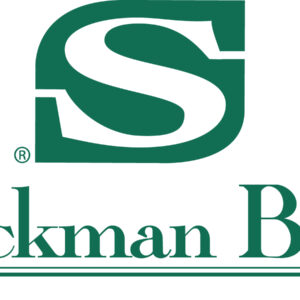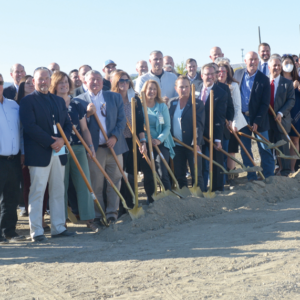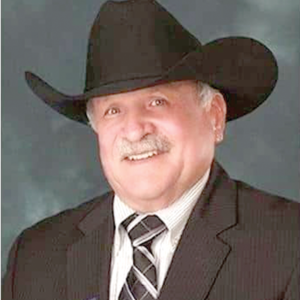Supply chain disruptions are impacting half of all small businesses and they are getting worse. Most employers are not mandating vaccination, and about a fourth of small businesses are exceeding pre-crisis sales levels.
The NFIB (National Federation of Independent Business) Research Center released its latest COVID-19 survey on how the COVID-19 pandemic has affected small businesses.
“Supply chain disruptions and the staffing shortage have become substantial issues for small businesses across the country,” said Holly Wade, Executive Director of NFIB’s Research Center. “Small employers are making business operation and hiring adjustments in order to compensate for both issues.”
This is the 19th survey in the series and includes updates on supply chain disruptions, staffing shortages, sales levels, and more. The survey was conducted from September 1-6, 2021, with 586 responses collected.
Key findings include:
Supply Chain Disruptions
* Half of small business owners reported that supply chain disruptions have a significant impact on their business, up from 32% two months ago.
* Over half (55%) of owners impacted report that the supply chain disruption is worse than it was three months ago.
* The vast majority (86%) of owners anticipate supply chain disruptions will continue for at least the next five months or more.
Staffing Shortages
* Over one-quarter (27%) of small employers are currently experiencing a significant staffing shortage and another 18% are currently experiencing a moderate staffing shortage.
* Of those small employers currently experiencing a staffing shortage, 25% are experiencing a significant loss of sales opportunities and 27% a moderate loss of sales opportunities because of their inability to fill open positions.
* About half (49%) of small employers are receiving fewer job applications for their open positions than they received one month ago, and 36% are receiving about the same amount.
* Small employers are adjusting to attract employees for open positions. Seventy-seven percent reported increasing wages, 17% increased paid time off, 16% offered or enhanced hiring bonuses, 18% offered or enhanced referral bonuses, and another 21% offered or enhanced health insurance benefits.
* Small business owners are also making business operation adjustments to compensate for the staffing shortage. Forty-one percent of owners are offering more hours to part-time employees, 64% are offering overtime to full-time employees, and virtually all (88%) of owners reported that the owner(s) are working more hours.
Sales Levels
* Sales levels are 50% or less than they were pre-crisis for 15% of small businesses with another 18% at sales levels of 51%-75% pre-crisis levels.
* Forty-one percent of owners are back or nearly back to where they were with sales between 76%-100% of pre-crisis levels. About one-in-four (26%) are exceeding pre-crisis sales levels.
The Economy
* Twenty-one percent of owners report that economic conditions are back to normal now in their area. Another 6% of owners anticipate it taking until the second half of 2021 and 23% anticipate sometime in the first half of 2022 before economic conditions return to pre-crisis levels.
Vaccinations and Face Coverings
* About one-quarter (26%) of owners are asking employees if they are vaccinated, up from 19% two months ago.
* When asked about mandating employee vaccination, 83% of small employers have no requirement or have not considered requiring employee vaccination. Fourteen percent of owners have considered mandating vaccination and 3% require employee vaccination.
* Twenty-five percent of owners reported requiring employees and/or customers to wear a face covering. Of those businesses requiring face coverings, 27% found it difficult to enforce the face covering requirement.
Childcare
* Eight percent of small employers reported that childcare challenges are significant issues and 12% reported them as moderate issues.
* Since the onset of COVID-19, 29% of small employers have had employees quit or reduce their hours due to childcare challenges. Additionally, 18% of small employers have had difficulty hiring applicants for open positions specifically due to childcare challenges.
Utilization of COVID-19 Programs
* About three-quarters (76%) of small business owners reported that they received a Paycheck Protection Program loan in 2020 and the vast majority of them (94%) have submitted a PPP loan forgiveness application for their 2020 loan.
* Forty-one percent of those who received a first-draw PPP loan received a second-draw PPP loan.
* Ten percent of owners claimed the Employee Retention Tax Credit (ERTC) for wages in 2020. Only 8% of owners claimed the ERTC for wages in 2021.
* A fifth of small employers applied for and received an Economic Injury Disaster Loan (EIDL).
Other
* Almost half (45%) of small business owners report that the recent rise in COVID-19 cases over the past two months has had a large (9%) or moderate (36%) impact on their business.
* About a quarter (28%) of owners report that tariffs on Chinese products have a somewhat negative impact and 10% a significant negative impact on their business. Over half (54%) of owners report that the tariffs have no impact on their business.
* Thirty-one percent of owners had a fraudulent unemployment insurance claim filed against their business.





